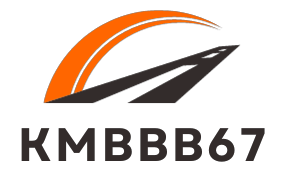Top Tips for Navigating the Beer and Wine License Process in New York City
Starting a business that serves alcohol in New York City can be an exciting venture, but the process of obtaining the necessary licenses can feel overwhelming. One of the most important licenses you’ll need is the beer and wine license, which allows you to sell beer and wine at your establishment beer and wine license nyc. Navigating the application process requires attention to detail and understanding of local laws. To help you through this process, here are some top tips for securing your beer and wine license in NYC.
1. Understand the Different Types of Licenses
In New York City, the type of license you apply for depends on your business model. If you’re only looking to serve beer and wine (without liquor), you’ll likely need a Beer and Wine License under the New York State Liquor Authority (SLA). There are different categories of these licenses depending on your type of business:
- On-premises: Allows you to serve beer and wine at your location.
- Off-premises: Allows you to sell beer and wine to go.
Make sure you choose the appropriate license based on whether your business will be serving alcohol on-site or allowing customers to purchase for take-out.
2. Know the Eligibility Requirements
To apply for a beer and wine license in NYC, there are certain eligibility requirements you must meet. For example, you must:
- Be 21 years or older.
- Not have any felony convictions (unless your case has been dismissed or pardoned).
- Be a legal entity, such as a corporation, partnership, or LLC, if applying on behalf of a business.
Make sure to review the eligibility criteria on the New York State Liquor Authority website to avoid delays during the application process.
3. Prepare Your Business Premises
Before you apply for your license, ensure that your premises meet the legal requirements for serving alcohol. This includes:
- Proper zoning: Your establishment must be located in a zone that allows the sale of alcohol. Check with the NYC Department of Buildings to ensure your location complies with zoning laws.
- Certificate of Occupancy: You need to have a valid Certificate of Occupancy for your establishment that specifies the intended use.
- Fire Safety: Make sure your space meets fire safety regulations, including having appropriate exits and fire extinguishers.
A successful application requires compliance with these local laws, so be prepared to provide documentation of your premises’ eligibility.
4. Submit Your Application
Once you’ve determined which license you need and ensured your business complies with zoning and safety regulations, the next step is submitting your application. The process is handled by the New York State Liquor Authority (SLA).
You’ll need to submit a complete application package, which includes:
- A completed SLA form.
- Proof of eligibility (such as a valid ID or business formation documents).
- A diagram of the premises showing the layout.
- Proof of zoning compliance.
- A filing fee (the fee varies depending on the type of license and business).
The SLA also requires a Public Notice to be posted at your premises, which notifies the public of your intent to apply for a license. This gives local residents and businesses a chance to voice any concerns about your application.
5. Prepare for a Public Hearing
Once your application is filed, the SLA may schedule a public hearing to review your application. This is especially common in cases where objections have been raised by local residents or businesses. At the hearing, you’ll need to present your case and respond to any concerns.
It’s a good idea to consult with an attorney who specializes in alcohol licensing to help you prepare for this step. They can assist with making sure your application is in order and represent you during the hearing.
6. Plan for the Waiting Period
After you submit your application, it can take several weeks (or even months) for the SLA to review and approve your request. During this time, the agency will conduct a background check, inspect your premises, and possibly request additional information.
Make sure to plan ahead and have your business operations ready to begin once your license is approved. In the meantime, you can stay in touch with the SLA for updates on your application status.
7. Adhere to Local Rules and Regulations
Once you’ve received your beer and wine license, it’s crucial to stay compliant with the rules and regulations outlined by both the New York State Liquor Authority and New York City. This includes adhering to:
- Operating hours: NYC restricts the hours during which alcohol can be served, with some variation depending on your location.
- Alcohol serving guidelines: You cannot serve alcohol to intoxicated patrons or sell alcohol to minors.
- Recordkeeping: You must keep accurate records of all alcohol sales and comply with the SLA’s reporting requirements.
Fines and penalties can result from violating these regulations, so it’s important to stay informed about the laws and ensure your staff is well-trained.
8. Consult with a Licensing Attorney
If the process seems complicated or you run into issues along the way, it’s always a good idea to consult with a licensing attorney who specializes in alcohol-related permits. They can help you navigate the complexities of the application process, represent you in public hearings, and ensure that you comply with all necessary laws.
Conclusion Obtaining a beer and wine license in New York City is a multi-step process that requires preparation and attention to detail. By understanding the types of licenses available, ensuring your premises are compliant, and carefully submitting your application, you can avoid common pitfalls and speed up the approval process. Consulting with an experienced attorney can also help ensure a smooth path toward getting your license. With the right approach, you’ll be ready to serve your customers and enjoy the rewards of your hard work.
4o mini
